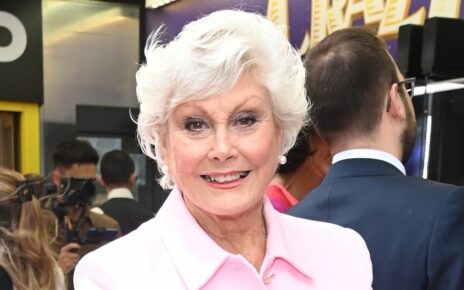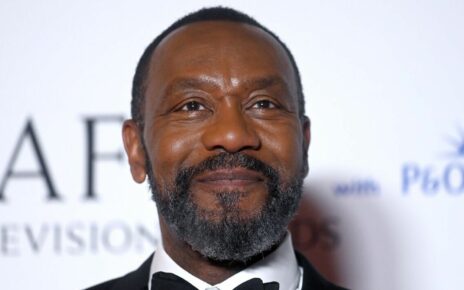With three competition titles across the last four editions, no contemporary filmmaker has been more present on the Venice Lido than director Michel Franco.
The Mexican auteur returned to the Venice competition last night with his latest title, Memory, a taut New York City-set drama with scorching performances from Jessica Chastain and Peter Sarsgaard.
In the pic, Chastain plays Sylvia, a social worker who leads a simple and structured life: her daughter, her job, and her AA meetings. But all is blown open when Saul (Sarsgaard) follows her home from their high school reunion. Their surprise encounter will profoundly impact both of them as they open the door to the past.
Related Stories

Jessica Chastain Movie 'Memory' Gets 7-Minute Ovation At Venice Premiere

'Memory' Review: Jessica Chastain & Peter Sarsgaard Reconnect, Disrupt Several Lives In Michel Franco's Thoughtful Drama – Venice Film Festival
“I immediately knew I wanted to be a part of it,” Chastain said of her response after reading Franco’s screenplay.
Brooke Timber, Merritt Wever, Elsie Fisher, Jessica Harper, and Josh Charles also star in the pic, which is looking for a buyer here in Venice. The Match Factory is repping sales.
The film — which was also shot in New York City — was officially confirmed for a SAG-AFTRA interim agreement on Thursday, the day before its premiere. After its first screening in Venice’s Sala Grande, the film received a warm seven-minute ovation.
Below, Franco, Chastain, and Sarsgaard speak with Deadline about how the film came together, and why they believed it was important to obtain an interim agreement and travel to Venice. The trio also shares their overall opinions on the dual Hollywood strikes and Sarsgaard teases the next film from his wife, actor-director Maggie Gyllenhaal.
DEADLINE: Michel, we met last year, and you told me you were shooting a film in New York City. It turned out to be this film, Memory. Where did the idea come from for this story?
MICHEL FRANCO: It’s hard to know exactly where the ideas come from. I’m trying to make one film a year, so I follow my gut and instincts. Instead of going to therapy, I make movies. For this film, I had this idea about these two characters that reunite during a class reunion. They find each other. He follows her home. She’s not happy about that. I don’t know why I had that idea, but it triggered many questions. And that was the beginning of writing this film.
DEADLINE: Why are you trying to shoot a film every year?
FRANCO: Well, it’s my job. One gets better the more you practice. Also, I just like it. I enjoy it the more I do it. I feel more secure, and hopefully, I get better. I have a hard time understanding filmmakers who stay away from filmmaking for five years. When you do that, every film becomes an event. Then it becomes a heavy load for the film and actors.
DEADLINE: Jessica and Peter, how did this film and Michel get to you?
JESSICA CHASTAIN: My agent reached out and asked if I would like to meet Michel. I was familiar with his work, and she sent me this new script. I immediately knew I wanted to be a part of it. We just had to meet, and within five minutes, I was like, ‘Yeah, I want to do it.’ It was so easy with the two of us.
FRANCO: I kept saying are you sure because it’s a very independent movie, and she kept saying yes.
CHASTAIN: He said there’s no makeup; you won’t have a trailer. I was like, ‘great.’ I’ve never worked like this before. It made me so happy. I went to the store and bought clothes for Silvia at Target, and we did fittings. I felt really like I could find her skin. It felt incredibly inspiring and exciting.
FRANCO: I reached out to Peter, but I asked Jessica who do you want to work with. Because I knew that those two actors needed to have a lot of chemistry. Without that, there was no movie.
PETER SARSGAARD: Michel and I met in New York. I knew his films and that his process of working would be something that I would enjoy. I’ve never done a film that was shot exactly like this. But I’ve had experiences where the actors are really relied upon. And Jessica is one of my favorite actors. My wife and I were among the first people to see a public screening of Tammy Faye, and I could not believe how extraordinary she was. I already admired her, but it’s nice to watch actors grow. For me, it was just like, please give me the job.
DEADLINE: Peter, that’s an interesting point about Michel’s narrative methods. His work requires a lot of physical and emotional work from actors. How do you maintain that throughout a production?
SARSGAARD: It’s easier because what I find difficult is shooting the same scene for three days. A lot of conventional filmmaking is quite chopped up. And they can change the whole scene anyway because they’ve got all kinds of coverage. I like to just step in with the other actors, engage with them, and see where we go. And as long as we’re going somewhere in the script and the director helps us find where we’re going, that is way easier for me.
DEADLINE: Did you guys land an interim agreement for this film?
Absolutely. We would not be here without an interim agreement. SAG has made it very clear that as part of their strategy to help the strike efforts, they want actors to support and work on interim agreement films. It’s a big deal for independent producers to apply for them and to get them because what they’re doing is letting the AMPTP know that SAG’s requests are reasonable and realistic. So we’re very proud to be here arm in arm with SAG in support of our film.
DEADLINE: What is the crux of the issue with the strikes and how do you think we can reach a resolution?
SARSGAARD: One of the jury members brought an AI PhD with her to the festival, and I managed to talk to her for quite a while. She opened my eyes to the fact that AI is going to affect nearly everyone in every profession. One of the things that the AMPTP will not agree to yet is that an actor is a person, and so is a writer. Well, is a doctor a person? What about a teacher or lawyer? AI is not just going to be an issue that affects actors. It’s imperative that we win this fight. Otherwise, it is possible to conceive that you could go in to see your doctor, and your symptoms are filed into an algorithm and a chatbot spits back out a diagnosis. That’s going to happen if we’re not careful.
DEADLINE: What are you all planning to do next?
CHASTAIN: Hopefully, more interim agreement projects.
FRANCO: I’ll keep doing my thing, making independent movies. I hope the strikes get us back to the basics where we care about real films written and produced by independent filmmakers, not by studios or streamers just looking for money. Films shouldn’t be about that. So I’ll keep doing my thing split between Mexico and the States.
SARSGAARD: I’m going to be in my wife’s next movie when the strike is over. And that’ll be fun.
DEADLINE: I loved the first film you guys made. It’ll be interesting to see what you cook up this time…
SARSGAARD: It’s a big meal.
Must Read Stories
WGA Says Several Companies Have “Desire” To Make Deal; AMPTP Calls Claim False
Quentin Tarantino’s Final Movie Snags Big California Tax Credits, Will Shoot In L.A.
‘Conjuring’ Universe Sequel Collects $3.1M In Thursday Previews
Capitol Hill Pols On Labor Dispute & Destructiveness Of A Pyrrhic Victory
Read More About:
Source: Read Full Article






